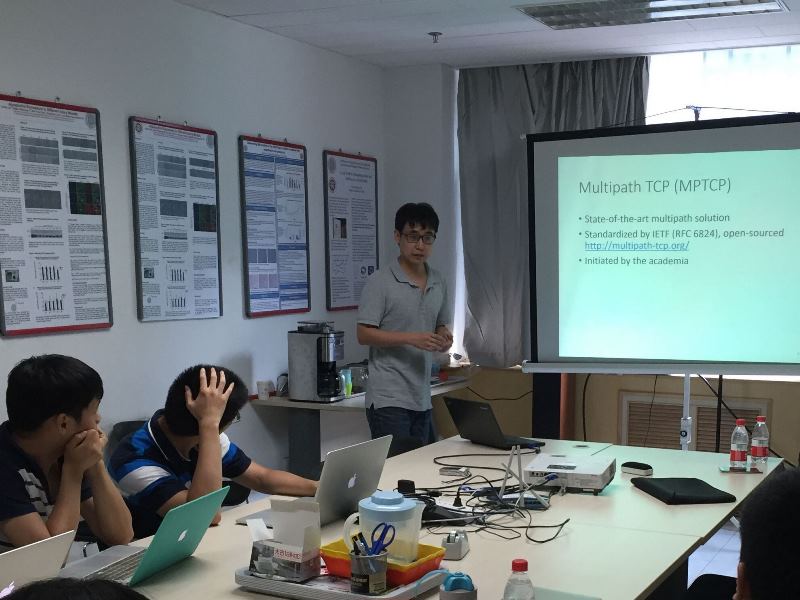Aug. 8, 2016 –Dr. Feng Qian from Indiana University Bloomington visited CECA and gave a talk on "Towards Fast and Flexible Multipath TCP on Smart Devices”.

Abstract: It is common that today's smart devices such as smartphones, wearables, and even IoT gadgets are equipped with multiple network interfaces (e.g., cellular, Wi-Fi, Bluetooth). Multipath transport allows applications to use multiple interfaces simultaneously and provides new opportunities for drastically improving the application performance. The state-of-the-art solution of multipath transport is Multipath TCP (MPTCP), which has been standardized by IETF. Despite MPTCP and other existing efforts, there still remain numerous challenges of applying multipath on smart devices due to various restrictions and missing features.
In this talk, I will first provide an overview of MPTCP and reveal key challenges of using it in the smart device context based on our recent measurement studies. I will then introduce MPFlex, a novel multipath framework designed and implemented by us. MPFlex adopts several techniques such as multiplexing and zero-RTT handshake to improve the multipath performance. It also enables developers to flexibly plug-in new multipath features by writing only user-level code. I will also describe our on-going work on further improving the performance, resource efficiency, and flexibility of multipath transport on smart devices.
Biography: Dr. Feng Qian is an assistant professor at Indiana University Bloomington. His research interests cover broad areas of computer networking, mobile systems, network measurement, and wearable devices. Prior to joining IUB, he was a researcher at AT&T Shannon Labs. He obtained his Ph.D. degree in Computer Science and Engineering at University of Michigan in 2012. He has published more than 15 peer-reviewed research papers in top-tier networking and system conferences including ACM SigComm, MobiCom, Mobisys, CoNEXT, IMC, SIGMETRICS, WWW, and IEEE ICNP. The ARO (mobile Application Resource Optimizer) system, Dr. Qian's Ph.D. thesis work with AT&T, has been open-sourced and is now widely used in industry and academia.
click here to download poster.